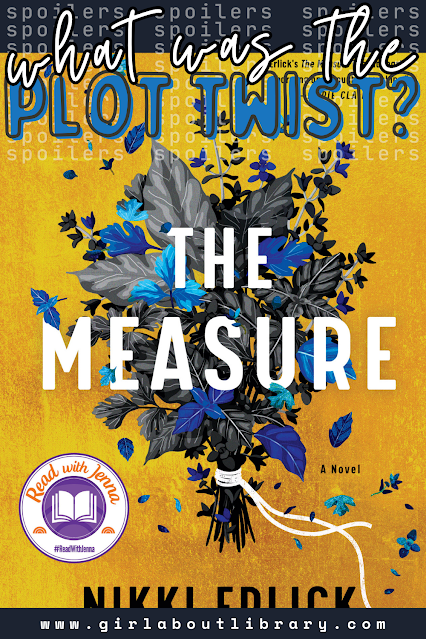February 1862, 154 years ago - Willie Lincoln, age 11, son of then president Abraham Lincoln, died of typhoid fever. After Willie's death, newspapers reported that Abraham Lincoln visited his entombed remains- removing Willie from his tomb and holding his now dead son. George Saunders encapsulates this moment of grief into "Lincoln in the Bardo". Told from the perspective of others caught in the "bardo"- a purgatory, Saunders explores the mind of a mourning Abraham Lincoln, through a truly masterful weaving of fiction and non fiction. "Lincoln in the Bardo" is an absolute must read, and one of my favorites so far in 2017.

Lincoln in the Bardo
by George Saunders
February 1862. The Civil War is less than one year old. The fighting has begun in earnest, and the nation has begun to realize it is in for a long, bloody struggle. Meanwhile, President Lincoln’s beloved eleven-year-old son, Willie, lies upstairs in the White House, gravely ill. In a matter of days, despite predictions of a recovery, Willie dies and is laid to rest in a Georgetown cemetery. “My poor boy, he was too good for this earth,” the president says at the time. “God has called him home.” Newspapers report that a grief-stricken Lincoln returns, alone, to the crypt several times to hold his boy’s body.
From that seed of historical truth, George Saunders spins an unforgettable story of familial love and loss that breaks free of its realistic, historical framework into a supernatural realm both hilarious and terrifying. Willie Lincoln finds himself in a strange purgatory where ghosts mingle, gripe, commiserate, quarrel, and enact bizarre acts of penance. Within this transitional state—called, in the Tibetan tradition, the bardo—a monumental struggle erupts over young Willie’s soul.
Lincoln in the Bardo is an astonishing feat of imagination and a bold step forward from one of the most important and influential writers of his generation. Formally daring, generous in spirit, deeply concerned with matters of the heart, it is a testament to fiction’s ability to speak honestly and powerfully to the things that really matter to us. Saunders has invented a thrilling new form that deploys a kaleidoscopic, theatrical panorama of voices to ask a timeless, profound question: How do we live and love when we know that everything we love must end?
One of the most creative books I have ever read...
From beginning to end, "Lincoln in the Bardo" is a *reading experience*. Saunders does an absolutely flawless job of weaving first person accounts of Lincoln, Mary, Willie, and more into one of the most imaginative fictional plot lines I have ever read. I absolutely loved the historical elements Saunders included in this book, and not being familiar with his work I wasn't expecting it. Previous to reading "Bardo" I knew that the Lincoln's lost a child during their time at the White House, but the citations from dozens of primary sources deeply enhanced my understanding and enjoyment of the book. The accounts were at times touching, at others fascinating, and in some cases incredibly infuriating.
So much has changed, much stays the same...
"One is thunderstruck that such a brutal violation has occurred, in what had previously seemed a benevolent world. From nothingness, there arose great love; now, its source nullified, that love, searching and sick, converts to the most abysmal suffering imaginable." - Essay Upon the Los of a Child, as quoted in "Lincoln in the Bardo"
I was heartbroken reading about Willie Lincoln, who was by all accounts a vibrant and boisterous young man, dying of typhoid fever. I thought frequently when reading this book what a blessing modern medicine is to those who have access. Several months ago, my one year old came down with his first fever. I was so concerned! Wringing my hands while listening to his cough and monitoring his fever, but all the while in the back of my mind I knew that no matter what happened a state of the art medical facility was less than ten miles away- while that can never mediate all parental anguish, I still felt terrible for my miserable boy, it is certainly an immeasurable blessing. "Lincoln in the Bardo" was a gentle, but heartfelt reminder of this. I simply can not imagine the helplessness that Mary Lincoln and millions of other women must have felt, and still feel, without access to something that we so easily for granted, such as vaccinations or Tylenol. Saunders included primary sources detailing Mary and Abraham's frequent trips upstairs as they watched their son deteriorate with little to no recourse.
After grieving with the Lincolns for Willie, I was unspeakably frustrated reading the words of the Civil War "gossip rags" Saunders included in the book. Many of which, placed Mary and Abraham as responsible for Willie's death, and that they in fact increased his suffering due to the party that was downstairs while he was sick. How can people be so cruel in the face of such suffering? That same feeling strikes me reading the comment section on Facebook after a child has drown, fallen, been left in a car etc. ( p.s. staying away from comment sections is just good self care in general). The placement of blame on the Lincoln's was particularly unfair considering typhoid fever is spread through close exposure to someone infected, or by consuming food or water that is infected with the virus. Not that shame or empathy has ever stopped someone from placing additional grief and hardship on the shoulders of someone suffering - but STILL. ugh, I just want to hit 'em...
Saunders did an amazing job melding all of these details together into a cohesive story. A story that I wish were available for other major historical events. After reading this book I feel like a scholar on a very small portion of Abraham Lincoln's life, and I just wish this type of story were available for like every major historical incident that I wish I was more informed about!
Sometimes A Struggle
As is common with super hyped and highly anticipated books, I had an idea of what I wanted this book to be. And while I never should've guessed at what this book would be like, because George Saunders is off the charts talented (duh.) and I was blown away for the most part. I was also a little put off at times but the writing style. I've never been one for potty humor, especially mixing poignant and touching with talk of bowel movements or other bodily functions/parts- and that happened about every ten or so pages in "Lincoln in the Bardo". I would be so into the story, searching for some tissues for my soon impending tissues, and then a fart or poop joke would show up and I'd be like, what? no! stop!
I gave "Lincoln in the Bardo" 4/5 stars. I was blow away by some parts of the book, but a little taken aback at times by Saunder's writing style. Had those parts not been in the book, or were they my taste - this book would easily be 5/5. Have you read "Lincoln in the Bardo"? Let me know what you thought of the book below. Thinking about picking this one up? Click here to find a copy at your local library or click below to view the book through my affiliate link.
Many thanks to Random House books for allowing me to read this book prior to publication. As a "girl about library", where books are always free, you can be sure that all opinions expressed are my own. Happy reading!
















0 comments:
Post a Comment
Thank you so much for commenting! If you are a blogger as well, please be sure to leave a link to your blog- I'd love to visit!